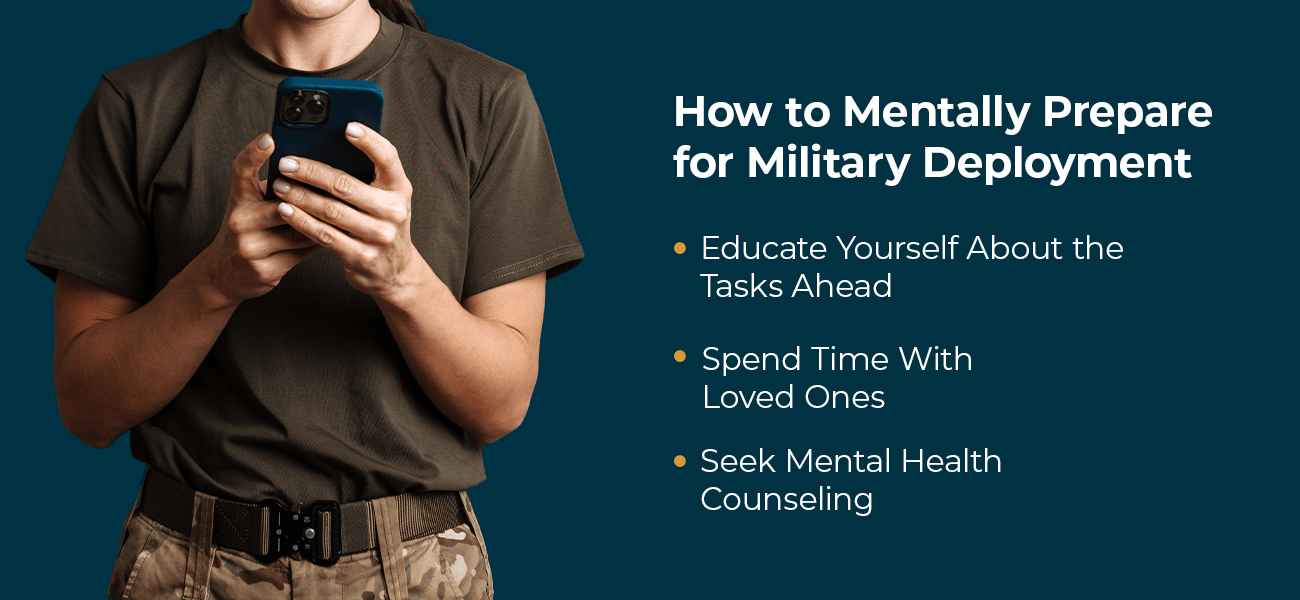How to prepare for the army

Military service is a challenging and rewarding path to life, which brings strength and resilience to recruits. Whether you are just enlisted or are preparing for the next tour, you must prepare a solid psychological foundation in combat preparation. With the right psychological support and baseline skills, you can make the most of your military’s time and earn honors for yourself and your country.
How to prepare for basic training
Basic training is your first taste of military life, which may be very different from the family life you are used to. While your practice sergeant will always harbor your best interest, they will prompt you to perform at an absolute advantage. Follow five key steps to build your own perseverance:
1. Exercise and be healthy
As of 2022, the U.S. Army has mandated the Army Combat Fitness Test (ACFT) to assess recruitment endurance, agility, functional strength, and duty ready.
For Army personnel aged 17 to 21, these fitness tests include:
- plate: Both male and female soldiers must keep the board in place for at least one minute and 30 seconds.
- Triple repeat maximum deadlift (MDL): The male soldier must be raised 140 pounds, the lady soldier must lift 120 pounds.
- Two-mile run: Male soldiers must complete the run in less than 22 minutes, and females must 23 minutes and 48 seconds.
- Standalone (SPT): Soldiers threw a 10-pound medicine ball for distance.
- Sprint-Drag-Carry (SDC): The soldier drags two 40-pound kettles on the sled while dragging the two 40-pound kettles onto the sled.
- Manual release push-ups (HRP): Soldiers complete as much HRP as possible in two minutes.
If you are not ready for basic training that meets these standards after several months of hard training, you will be at risk of injury, exhaustion and reduction of self-confidence. Protect yourself from this by regularly going to the gym before basic training, doing strength training and cardiovascular endurance. If you stay physically, you will be prepared to deal with possible home disorders and other mental challenges.
2. Develop healthy coping strategies
Psychological resilience is essential to make the most of basic training, persevere and successfully conduct professional training (AST) through physical harsh exercises. This is your ability to adapt and cope in challenging, stressful situations and help you in all areas of your life, including employment, education, and mental health in general. You can use:
- Learn to recognize signs of stress: When your mind becomes overwhelmed, your body warns you such as irritability, muscle tension, jaw clamping, and insomnia. Discover metrics early so you have time to process your emotions and calm yourself down.
- Practice self-relieving techniques: Once you realize that your mental state is exciting, take steps to relax your mind, acknowledge your concerns, and then readjust your thoughts. Diary, breathing exercises, meditation, stretching, positive self-talk and nature trails all relieve agitation.
- Remark “problem” as an opportunity: When you encounter obstacles, you will not be able to overcome them through willpower, changing the lens of your viewing challenge. Think about what you can learn from the obstacles in front of you, encouraging optimism and appreciation rather than helplessness.
- Practice empathy when you are angry: If a person stirs up the intense emotions inside you, stop and consider why the person is acting this way. Maybe they feel insecure, sadness, anxiety, loneliness or overwhelmed, not to offend you, but to project. This mentality promotes forgiveness and understanding.
3. Addressing alcohol and substance dependence
Contact any alcohol or anesthesia dependency cuts and seek professional addiction treatments in detox programs, inpatient care or sober living facilities before starting military training.
If you are already in recovery, consider joining a support group such as Drug Anonymous (NA), Alcohol Anonymous (AA), Lifering, Shelter Recovery or Smart Recovery to build tools that can stay clean and sober during training. Remember that the military also has resources, such as the Army Substance Abuse Program (ASAP), that can support your recovery during and after service.
4. Establish a support network
Acknowledge that your social environment will change significantly. You will share a living space and interact with other students, not friends, family and loved ones. Of course, you will be able to call your loved ones occasionally and write.
When you know people of your age, it’s normal to feel isolated. Willing to build new friendships – Your recruits will learn about the challenges of adapting to military life, providing encouragement and sympathy.
5. Set realistic goals
Set achievable short-term goals for your mental health and physical development before and during training. These progressive victory will promote a sense of accomplishment and help you stay motivated by a strict superior voice and any worries about failure. As long as you keep trying despite setbacks and show serious motivation, you can use Ace Boot Camp.
How to prepare for boot camp
Although basic training for all military branches is often referred to as a “boot camp”, it is most accurately used to describe the initial training of recruits when joining the United States Marine Corps (USMC). The boot camp is more focused on reflecting USMC values and the basic elements of drills, so discipline, etiquette and concentration are crucial. USMC boot camps are committed to strengthening the role of recruits, sometimes considered more authoritarian.
To prepare for a boot camp psychologically, follow the same steps and basic training psychological preparation. If you are particularly concerned about the authoritarian reputation of Marine Corps Boot Camp, remember these tips:
- Remember deeper reasons for your enlistment: Let your passion be your driving force, whether it’s patriotism, family values, or other personal beliefs.
- Expect to make mistakes and shout: Knowing that every new recruit goes through the learning curve, so if your drilling coach punishes you, it means you are becoming a Marine.
- One step at a time: Instead of focusing on your first 12 weeks, focus on the tasks in front of you and put in 100% effort.

How to prepare for military deployment
After professional and on-the-job training, you will be deployed to active duty. Although all deployments have some basic characteristics, the details vary between which branches of the army you visit. To best prepare for active service, consider the following tips:
Education of your future tasks
Mental preparation is more than just emotional perseverance. Research where you want to live, learn as much about the mission’s goals as possible, understand your unit and ask about the deployment duration.
Spend time with your loved ones
Spend time to enjoy great time with family and friends before shipping. You may be a few months apart, so tell them what’s deep inside you and make lasting memories together. The thoughts of loved ones are an excellent way to stay rooted and emotionally strong during uncertain, challenging times.
Seek mental health consultation
Depending on your station and responsibilities, you may experience psychological challenges including conflict. These periods of distress may exacerbate preexisting mental health problems, including post-traumatic stress disorder (PTSD), anxiety, and depression. Talk to the therapist to understand yourself, priorities, fears and triggers so you can face them head-on during deployment.
Why You Can Trust Diamond House Detox
At Diamond House Detox, we learn that recruits, deployed soldiers, reserves and veterans all face unique psychological challenges and we are here to help. Our team of expert therapists and health professionals has decades of expertise to treat concurrent mental health and medication use disorders, including PTSD, depression, anger management, and anxiety.
We believe that it is crucial that military personnel have access to professional care due to the enormous obstacles they encounter during and after service. That’s why our military addiction specific program is designed and run by experienced veterans who know you’ve experienced first-hand experiences. We are also one of the few treatment facilities in Northern California, providing excellent holistic care for hospitalization accompanying medical services (IMS).
Let us help you live the precious life you have won
Whether you are looking for a safe place to detoxify, overcome the trauma of deployment or recover from material dependence, Diamond Home Detox is for you. If you are ready to struggle behind and forge a new path with the support of experts, take the first step immediately and talk to us.





